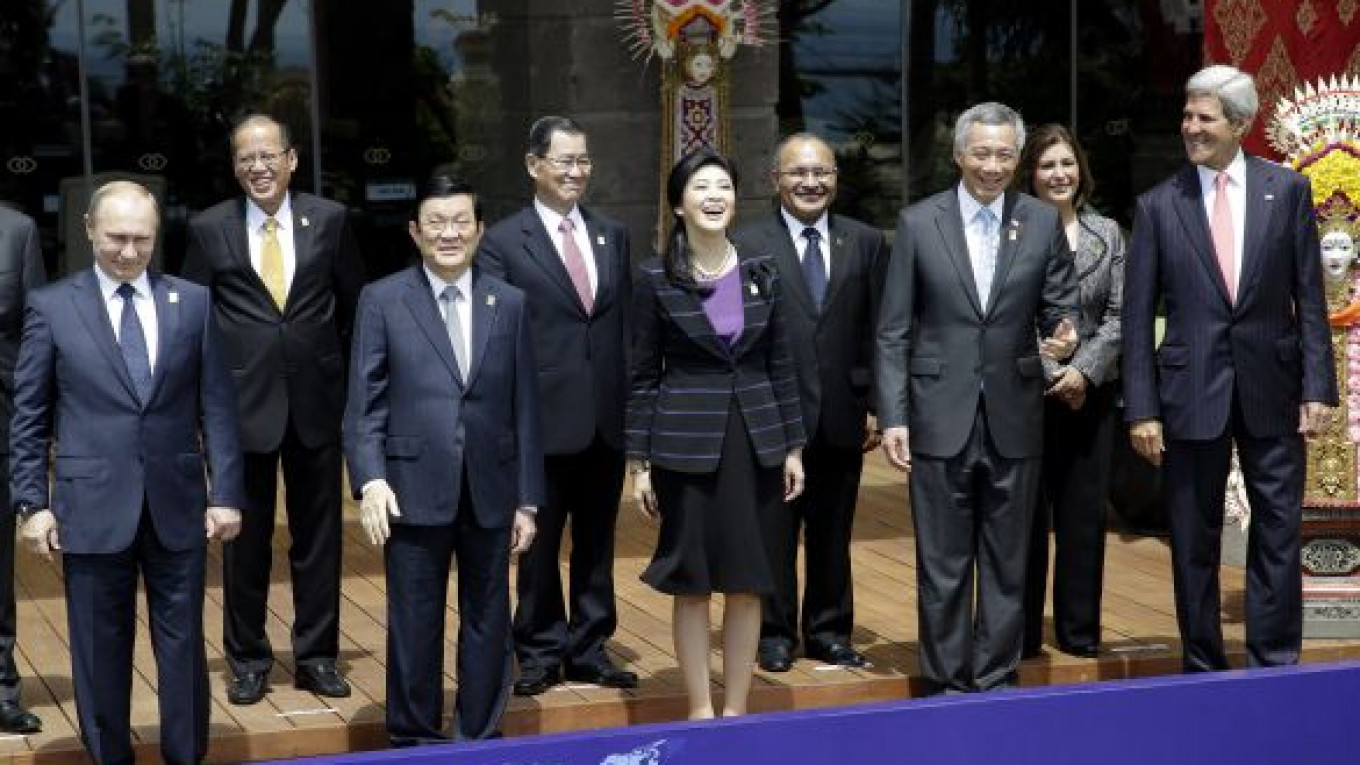Russia and the U.S. agree on how to eliminate chemical weapons in Syria, President Vladimir Putin said Tuesday after meeting U.S. Secretary of State John Kerry.
"We have a common understanding of what needs to be done and how. I am very glad that President? Obama is occupying this position [on chemical arms]," Putin said at the end of the Asia-Pacific Economic Cooperation trade summit on the Indonesian island of Bali.
International experts charged with starting the process of verifying and eliminating chemical weapons arrived in Syria earlier this month. Russia, Syria's long-time ally and arms supplier, has offered to assist with the demolition process.
Putin said he believed experts from the Organisation for the Prohibition of Chemical Weapons, or OPCW, would be able to accomplish their goal of ridding Syria of its chemical arms within a year.
"We and the Americans, the whole international community trust them," he said. "If they are saying it is possible to do this [eliminate Syria's chemical arms] in one year, then that is the way it is."
The team of experts, supported by the United Nations, aim to oversee destruction of the Syria's chemical weapons production and mixing equipment by Nov. 1, and deal with all chemical weapons materials by the end of June 2014.
Putin praised Syria for cooperation on the plan to destroy its chemical arsenal, a deal brokered by Moscow and Washington last month amid a possibility of U.S. military strikes against the forces of Syrian President Bashar Assad.
"The doubts regarding the readiness of the Syrian leadership to adequately respond to the decisions on chemical weapons proved to be unjustified," he said. "Syria has joined these efforts actively, is acting very transparently … and I hope this work will continue further at the same pace and in the same direction."
Relations between Washington and Moscow are strained by a number of issues, including remaining differences on Syria and Putin's record on human rights and democracy.
Russia has been a staunch supporter of Assad, whose fight against armed opposition groups has taken the lives of 100,000 people in more than two years. Moscow and Beijing have vetoed three U.N. resolutions intended to put pressure on Damascus.
A Message from The Moscow Times:
Dear readers,
We are facing unprecedented challenges. Russia's Prosecutor General's Office has designated The Moscow Times as an "undesirable" organization, criminalizing our work and putting our staff at risk of prosecution. This follows our earlier unjust labeling as a "foreign agent."
These actions are direct attempts to silence independent journalism in Russia. The authorities claim our work "discredits the decisions of the Russian leadership." We see things differently: we strive to provide accurate, unbiased reporting on Russia.
We, the journalists of The Moscow Times, refuse to be silenced. But to continue our work, we need your help.
Your support, no matter how small, makes a world of difference. If you can, please support us monthly starting from just $2. It's quick to set up, and every contribution makes a significant impact.
By supporting The Moscow Times, you're defending open, independent journalism in the face of repression. Thank you for standing with us.
Remind me later.


